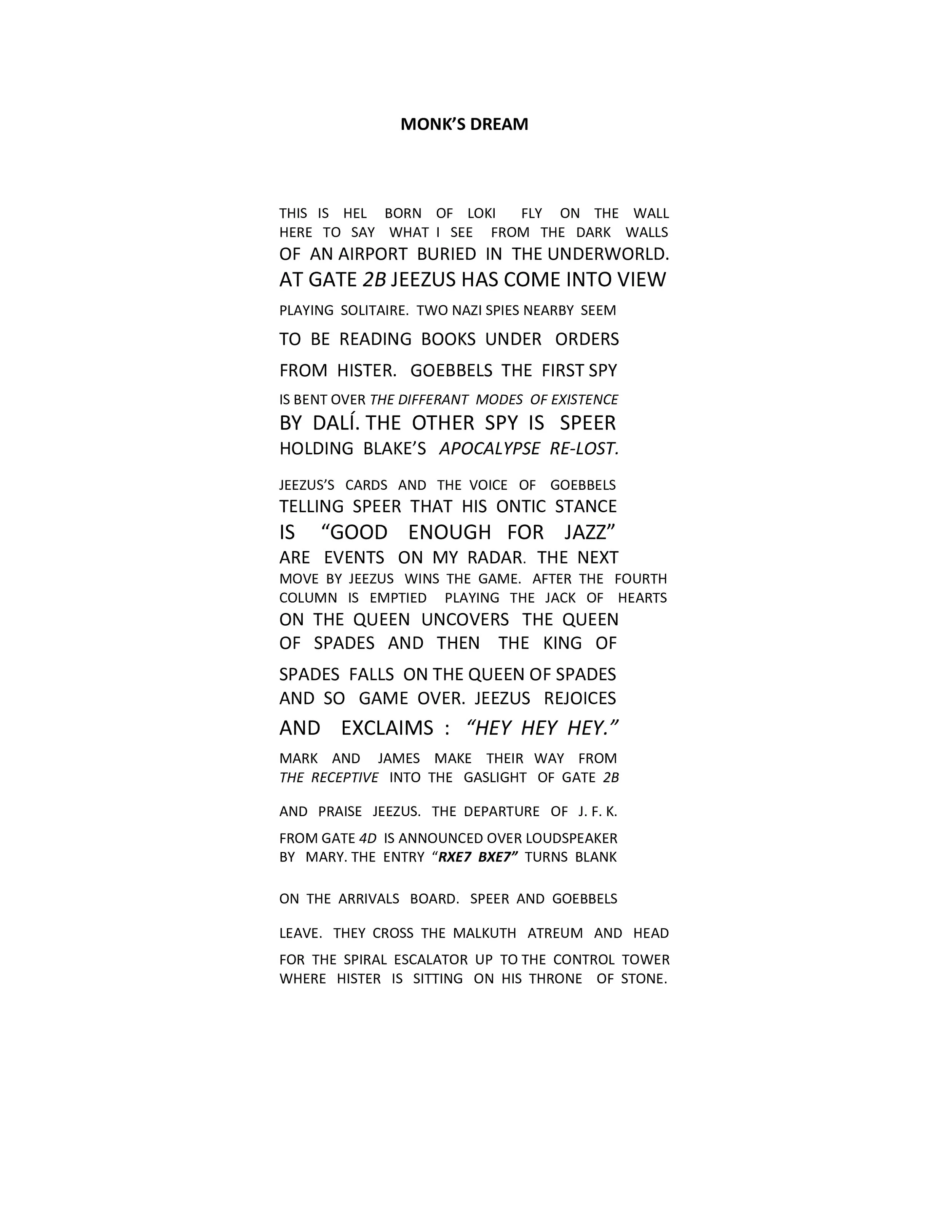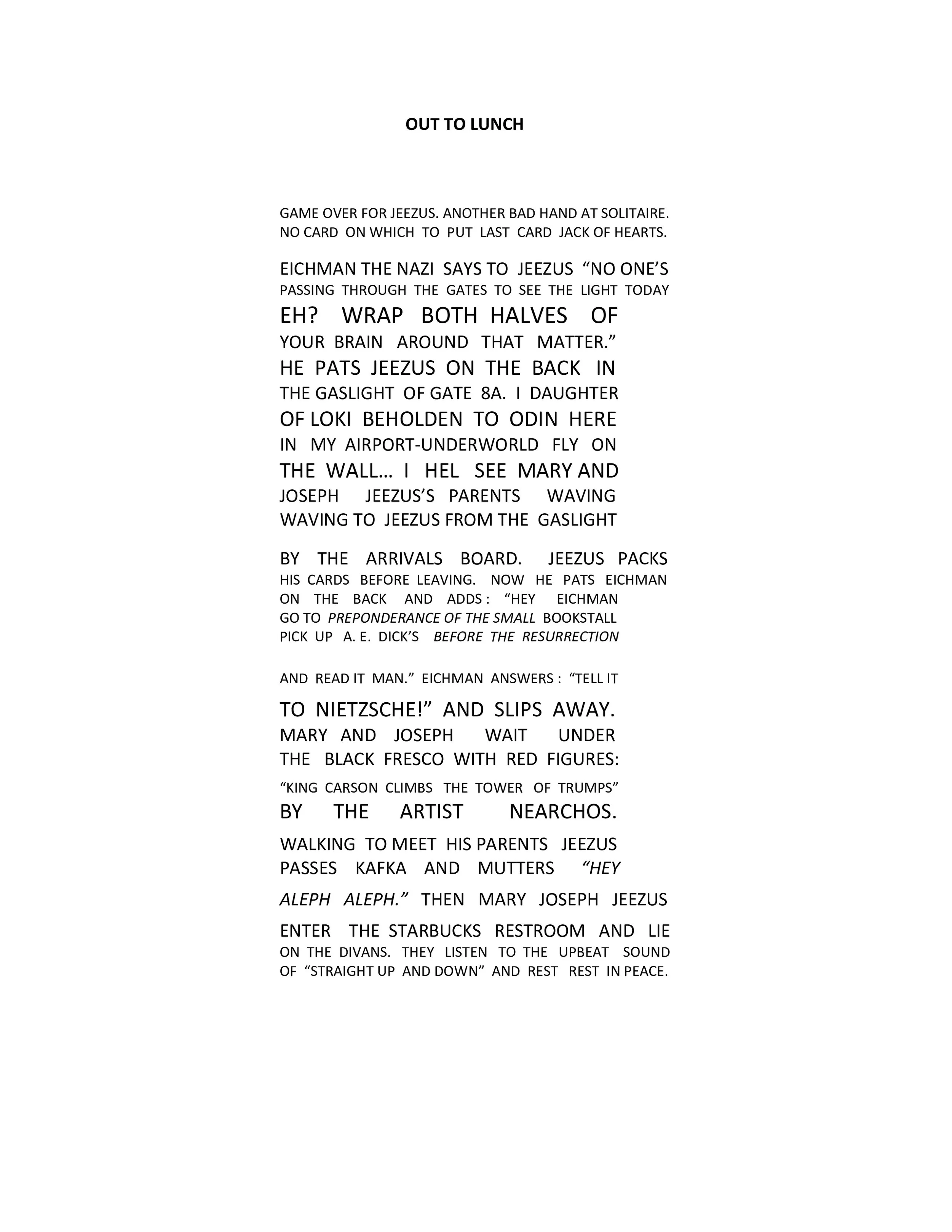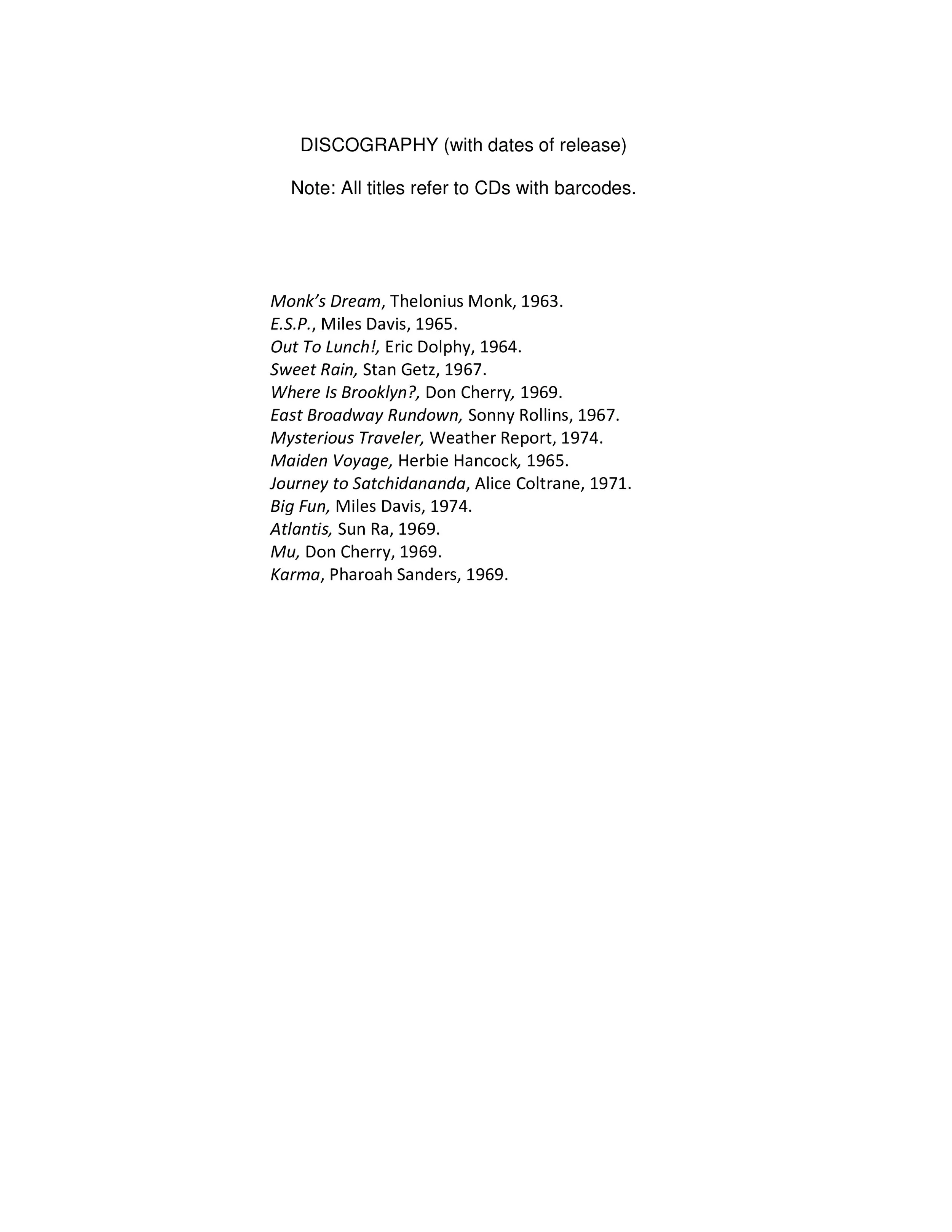André Spears
Reading on a summer’s afternoon: Nantucket, 2025.
Readings
A book that made you think
Samuel Beckett, Watt (Evergreen Original, 1959)
When I describe Watt as a book that “made me think,” I mean it quite literally: I was seventeen and ostensibly being taught in school how to think. More to the point Watt challenged me to think differently than the way I was otherwise being taught to think. This new perspective on literature was underscored by the experience of listening to the voice of my teacher (Dudley Fitts), who would read Watt to his students in an early morning class (during which he’d also read from Gertrude Stein and Kurt Schwitters). Watt introduced me to the concept of the “avant-garde” in literature and to what came to be known in the U.S especially as “experimental writing” (of which the most celebrated example in the 1960s was Burrough’s Naked Lunch), i.e. “creative writing” that challenged prevailing norms and expectations.
And while the narrative oddity, periodic punning and deadpan humor of Watt seduced me into the new thrills of the “experimental,” it also revealed in Beckett’s work a coming to terms with language qua language. Not only did Beckett’s writing branch out in different directions (poetry, essay, theatre, video, film), but the entire oeuvre was basically self-translated and methodically presented in parallel French and English versions, following a trajectory that formally gravitated toward lessness and silence. As noted by critic Pascale Guignard, the emblematic word in Beckett’s writing is “ON” a/o “NO.” It is into that strange knot that Watt keeps looping me back.
A book of poetry that was important to you when you were starting out as a poet and how that shifted or remained constant for you over time
Arthur Rimbaud, Illuminations in Oeuvres Complètes (Livre de Poche, 1972)
No sooner had the notion of the Flood regained its composure,
than a hare paused amid the gorse and trembling bellflowers
and said its prayer to the rainbow through the spider's web.” (trans. John Ashbery)
When I first read those lines (in French), the effect was not unlike hearing the opening riff from Hendrix’s “Foxy Lady” for the first time. The feeling was that something new had been ushered into the world, and changed it for all time. I became aware of the different order of power and intensity that the compression of poetic language could offer over and above the power of fictional narrative to animate the “creative imagination.” No doubt the same is true of the poetry of Rimbaud’s contemporary Emily Dickinson. But the writing that the prose poems of the “Illuminations” advance, in blurring the lines between prose and verse, seemed to open the possibilities of a poetry that might expand the limits of fictional narrative.
Moreover, Rimbaud’s poetry exists as part of a late nineteenth-century French poetry constellation—including Baudelaire, Lautréamont, Mallarmé, et al.—that for me at least represents some sort of nineteenth-century pinnacle in the art of poetry (the illustrated poems of Blake being another).
All of Rimbaud’s work is amazing in its ability to speak to younger generations (i.e. the Beats). But by the same token it is also indissociable from the always troubling figure of the poet who decides to drop out of the scene and stop writing poetry altogether.
A book of poetry that was important to you at a specific moment in your life (i.e. a breakup, a death, during pregnancy, when you children were young, during illness, etc.)
The Book of a Thousand and One Nights, trans. J.C. Mardus (1898-1904); trans. Powys Mathers (1923)
I don’t know if The Book of the Thousand and One Nights can be proposed as “a book of poetry,” except perhaps insofar as it can be described as a unique form of epic of which Scheherazad is the heroine. Reading it—in a time of personal crisis and depression—I certainly felt like I was reading some sort of wondrous poem. I read it in a handsome edition of the French translation by J. C. Mardrus, which is dedicated to the “memory of the thinker Stéphane Mallarmé.” I read it with the memory of reading Proust’s Recherche (under the guidance of Gilles Deleuze) fresh in my mind. It is a book that was very popular when it first appeared in “the West” and that no doubt offers the escapist pleasures to be found in fantasy literature (e.g. Tolkien) and sci-fi (e.g. Gene Wolfe), a sort of magical, mythic pleasure in the art of story-telling that remains integral to the history of poetry. At the same time, The Thousand and One Nights’ relation to history is deep and complex: it is as much the “exotic” product of a late nineteenth-century colonialist, orientalist sensibility (in a reprised translation contemporary with the work of Mallarmé and Proust) as it is an evolving, thousand-year old Indian, Persian, Arabic compendium that continues to exist in counterpoint to the Koran.
A poet or book in translation or in another language
C.P. Cavafy, Selected Poems, trans. Edmund Keeley and Philip Sherrard (Princeton University Press, 1972)
Cavafy’s poetry, which I read in the paperback version of the 1972 Keeley and Sherard translation, came to me as a revelation (cf. “The God Abandons Antony”). In the context of (European) modernism, of which Eliot’s “The Waste Land” was perhaps the most celebrated poem in English, I found the simplicity of its English-language translation stunning, its erotic lyricism completely novel and its opening onto ancient history—and notably the history of the Hellenistic world, i.e. the “barbarian” world conquered by Alexander (student of Aristotle) and in our own time largely the province of Islam—as compelling as it was innovative. However, despite appearances to the contrary, the language in Cavafy is anything but simple: it combines and interweaves strata in the Greek language that include ancient Greek, New Testament Greek, katharevoussa, and modern Greek. By the same token, I realize now that for all its originality and accessibility Cavafy’s poetry was exemplary of the larger recuperation of the ancient world that followed the discovery of “deep time” in 1859, and that led to the “archaic revival” that animated poetry and the arts through the heyday of modernism and beyond, a topic that later became of particular interest to me.
A poet or book of poetry from the mid-twentieth century
Charles Olson, The Maximus Poems, edited by George Butterick (University of California Press, 1983)
I came to Olson’s The Maximus Poems late in my reading of poetry & did not get there through the traditional channels, i.e. The New American Poetry, the long poems of Williams & especially Pound, Black Mountain College, Creeley, Duncan, Dorn, Whitehead, Jung, Corbin, etc. In my search for a dissertation project I was referred to Guy Davenport’s essay “The Symbol of the Archaic” in Geography of the Imagination, which also includes his essay “Olson.” My interest in how the impact of archaeological discoveries in the late nineteenth- and twentieth- centuries influenced the artists and poets of modernism and “post-modernism” directed me to Olson’s poetry collection Archaeologist of Morning, and to the realization that Olson was an exemplary case in point.
What struck me about the poems in The Maximus Poems was the rhizomatic way in which they signaled and connected to a heterogeneous mix of other writing(s). These poems were not like the beautifully articulated poems of, say, Yeats or Stevens. They were more like maps of the human universe that, against the geological, not to say cosmic, backdrop of Earth’s shifting tectonic plates, offered a poet’s special view of human history: from paleolithic cave art to the epics of Gilgamesh, the Hebrew Bible, Homer, Hesiod, to the poetry of Dante, Shakespeare, Melville—in an immensely ambitious project to poeticize the world, a project signed “Maximus” that emanated from Gloucester, MA, U.S.A.
Pierre Joris once said to me that for him the most salient poets in the later half of the last century were Celan and Olson. I share that view, even as I wonder if American poetry as I understand it didn’t drop off the map after the end of the Cold War, with the advent of cyberspace. On the other hand, Etcetera seems like a quintessentially Olsonian project. Live and learn.
Writings
André Spears, Ph.D., is an experimental writer/poet who lives in lower Manhattan. He is the author of two epics: a short one, Xo: A Tale for the New Atlantis (1983, online at Dispatches Poetry Wars, 2019) and a long one, From the Lost Land: Schizo-poem (2025), recently published by Station Hill Press. (In 2020 BlazeVox (re-)published Xo - A Tale For The New Atlantis ; the excerpt From the Lost Land (I-XII); and SHRINKRAP, Litany in Quadraphony .) He attended the Lyçée Français de New York, Andover, Yale and, over a period of some eighteen years as a part-time student at NYU, completed a doctorate in Comparative Literature, with a focus on the interrelation between the fields of literature and archaeology. In the course of his studies he has had the good fortune of studying with Dudley Fitts, Gilles Deleuze, Roland Barthes, Francis Ponge, Alain Robbe-Grillet, Gerard Genette, Geoffrey Hartman and Jacques Derrida. Website: https://pangaeapress.com/. André was rhizomed to etcetera by Michael Boughn (https://www.razzamatootie.ca/).






